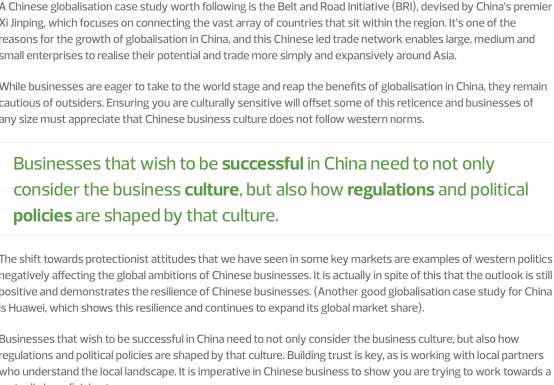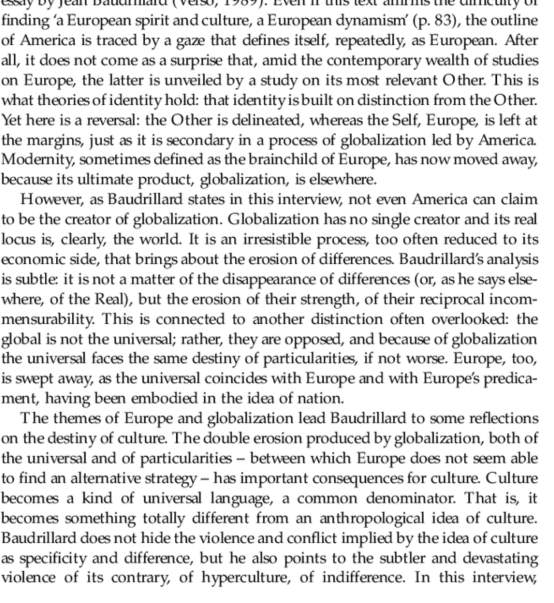Introduction
Globalisation, is one concept.It is also a process of the development of human society. Globalisation in the general sense of globalization refers to the growing global ties and the interdependence of countries in politics, economy and culture. However, academia has always had mixed views on the impact of globalization. The intersection of forces triggered by globalization can be called‘ tectonic pressure in the crust,because it accumulates quietly and then explodes suddenly, crushing down the mechanisms that originally stabilized the society.’ (Rachel Nuwer,2017). This eaasy will argue relationship between globalisation and westernization and how does it exert influence on China in terms of culture and economy.
Main body
Globalisation is not westernization. However,Whether globalization is westernazation or americanisation has been a heated debate for many years. Generally, we refer globalization to good exchange, flow of monetary, information communication and so on. It is the truth that a lot of countries throughout the word has learned many things such as technology and culture value from the west especially America. But it can not be ignored that it is the western countries who achieved moderinisation first. So if other countries set modernization as their ultimate goals, it will be inevitable to copy what the western world has done. People always bring up that American music and fast food have take up most of the market. Also, English has become the world language. That is why they regard globalization as Americanisation. But what they overlooked is that foreign food such as India, Japanese,Korean and Chinese food have gained wide popularity in US. This phenomenon is closely related to the premise of Postmodernism- breaking boundaries,which is one of the most important postmodernism thingking characteristic is boundary-crossing and pluralistic. Another angle to view this issue is as Baudrillard said ‘ Not even America can claim to be the creator and its real locus is, clearly, the world.’ (Monica Sassatelli, 2002: 251) In the case of China, being part of the globalisation can be regarded as a fair game because we truly benefited from learning the west. However, every cloud has a silver lining.
Get Help With Your Essay
If you need assistance with writing your essay, our professional essay writing service is here to help!
Globalisation is a double-edged sword in terms of its influence on China. While culture globalisation promotes social integration and provides new opportunities for thousands of people, it may also weaken the uniqueness of local culture, which in turn may lead to the loss of identity, exclusion and even conflict. For almost every developing country, it is both challenge and challenge and chance. For Chinese economy, foreign companies flooded into China means fierce competition to them. But at the same time, it is also a valuable opportunity for domestic companies to extract western advanced technology and their way of thinking. Opening nation boundary to other countries means more financial support and technological support for Chinese economy to grow. However, the downside of this phenomenon is that our culture value is at risk. According to Foucault’s viewon postmodernism,
Individual society possesses its own ‘truth discourse’ which means religion, science, etc. It presupposes some social power relationships. According to this premise, the Western ‘progress’ of globalisation is not about integration but merely a disguised form of domination and control.(John Bradford)Take a look at modern Chinese society. How western culture value has challenged our own culture is obvious. There is a significant decline in celebrating traditional festivals, and more and more people embrace western festivals such as Christmas and Halloween. It is understandable that cultural communication is a crucial element of globalization. Only absorbing these foreign element can guarantee a remarkable development for our own culture. But people should hold on to the bottom line of our culture. We should not forget while we learn. What’s more is that Chinese culture lacks of cultural autonomy in the vortex of globalization. For example, nowadays, many Chinese brands favor English names over Chinese characters. This is just one of the expressions of Chinese people’s fanaticism for western culture.However, China is rapidly becoming the new champion of economic cooperation, trade and globalization as the global evonomy shifts its focus towards China. Therefore,businesses that with to be successful in China need to not only consider the business culture,but also how regulations and political policies are shaped by that culture.(Hong Lu, 2018) After all, we became more interrelated with each other.
Conclusion
In conclusion, globalization is a process of world wide integration of economy and culture. Western culture and technology spread all over the world because of its advancement. However, we cannot regard this phenomenon as simply westernization or americanisation. Because the western society has also assimilated new elements from the rest of the world. It cannot be argued that globalization is profitable for the whole world. It is necessary for every country to seize all the opportunites that globalization has provided with the brave spirits of openness and realize modernization through the integration with foreign cultures.
References
- Bradford J.(2007) Postmodernism,Foucault and Baudrillard,power /knowledge, pp12
- Lu H.(2018) A changing nation: the effects of globalisationon China,
- Nuwer,R(2017) How Western Civilization could Collapse?, Weekly BBC Newsletter
- Sassatelli M.(2002) An interview with Jean Baudrilard:Europe, Globalization and the Destiny of Culture,Sage Publication, London, pp521-530
Source

https://mahb.stanford.edu/library-item/western-civilization-collapse/

https://www.slideshare.net/mobile/jbradfo4/postmodernism-foucault-and-baudrillard


https://www.rsm.global/insights/deglobalisation/changing-nation-effects-globalisation-china
https://journals.sagepub.com/doi/10.1177/136843102760514045

Cite This Work
To export a reference to this article please select a referencing style below:


